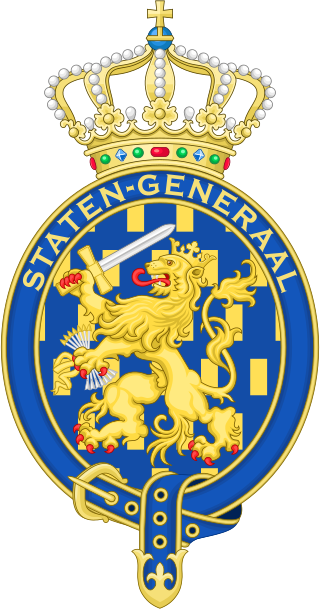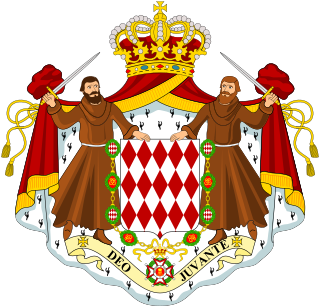| Andorran Citizenship Act | |
|---|---|
 | |
| Parliament of Andorra | |
| |
| Enacted by | Government of Andorra |
| Status: Current legislation | |
Andorran nationality law is based primarily on the principle of jus sanguinis.
| Andorran Citizenship Act | |
|---|---|
 | |
| Parliament of Andorra | |
| |
| Enacted by | Government of Andorra |
| Status: Current legislation | |
Andorran nationality law is based primarily on the principle of jus sanguinis.
Children born to recognised parents who were Andorran citizens at the time of birth (regardless of the place of birth) are eligible for Andorran citizenship.
Children born in Andorra under any one of the following conditions are eligible for Andorran citizenship:
Those seeking to become Andorran citizens via naturalisation are required to fulfill the following criteria:
If an Andorran citizen serves in the armed forces or government of another country or takes up a foreign citizenship, they automatically forfeit their Andorran citizenship.
Former Andorran citizens may restore their former citizenship if their request to the government is successful.
Any Andorran may live in France without requesting a visa. [1]
Dual nationality is strictly forbidden by Andorran law. On the other hand, Spanish law recognizes dual nationality with Andorra. [2]

Naturalization is the legal act or process by which a non-national of a country acquires the nationality of that country after birth. The definition of naturalization by the International Organization for Migration of the United Nations excludes citizenship that is automatically acquired or is acquired by declaration. Naturalization usually involves an application or a motion and approval by legal authorities. The rules of naturalization vary from country to country but typically include a promise to obey and uphold that country's laws and taking and subscribing to an oath of allegiance, and may specify other requirements such as a minimum legal residency and adequate knowledge of the national dominant language or culture. To counter multiple citizenship, some countries require that applicants for naturalization renounce any other citizenship that they currently hold, but whether this renunciation actually causes loss of original citizenship, as seen by the host country and by the original country, will depend on the laws of the countries involved.

Jus soli, meaning 'right of the soil', is the right of anyone born in the territory of a state to nationality or citizenship, also commonly referred to as birthright citizenship in some Anglophone countries, is a rule defining a person's nationality based on their birth in the territory of the country. Jus soli was part of the English common law, in contrast to jus sanguinis, which derives from the Roman law that influenced the civil-law systems of mainland Europe.

Belgian nationality law provides for the conditions in which a person holds Belgian nationality and is based on a mixture of the principles of jus sanguinis and jus soli.

Dutch nationality law details the conditions by which a person holds Dutch nationality. The primary law governing these requirements is the Dutch Nationality Act, which came into force on 1 January 1985. Regulations apply to the entire Kingdom of the Netherlands, which includes the country of the Netherlands itself, Aruba, Curaçao, and Sint Maarten.

Swedish nationality law determines entitlement to Swedish citizenship. Citizenship of Sweden is based primarily on the principle of jus sanguinis. In other words, citizenship is conferred primarily by birth to a Swedish parent, irrespective of place of birth.

The citizenship law of the Czech Republic is based on the principles of jus sanguinis or "right by blood". In other words, descent from a Czech parent is the primary method of acquiring Czech citizenship. Birth on Czech territory without a Czech parent is in itself insufficient for the conferral of Czech citizenship. Every Czech citizen is also a citizen of the European Union. The law came into effect on 1 January 1993, the date of the dissolution of Czechoslovakia, and has been amended in 1993, 1995, 1996, 1999, 2002, 2003, and 2005. Since 1 January 2014, multiple citizenship under Czech law is allowed.

Japanese Nationality Law details the conditions by which a person holds nationality of Japan. The primary law governing nationality regulations is the 1950 Nationality Act.

Belarusian nationality law regulates the manner in which one acquires, or is eligible to acquire, Belarusian nationality, citizenship. Belarusian citizenship is membership in the political community of the Republic of Belarus.

Turkish nationality law is based primarily on the principle of jus sanguinis. Children who are born to a Turkish mother or a Turkish father are Turkish citizens from birth. The intention to renounce Turkish citizenship is submitted in Turkey by a petition to the highest administrative official in the concerned person's place of residence, and when overseas to the Turkish consulate. Documents processed by these authorities are forwarded to the Ministry of Interior (Turkey) for appropriate action.

Singapore nationality law details the conditions by which a person holds Singapore nationality. The primary law governing nationality requirements is the Constitution of Singapore, which came into force on 9 August 1965.

The Spanish nationality legal framework refers to all the laws, provisions, regulations, and resolutions in Spain concerning nationality.

Ukrainian nationality law details the conditions by which a person holds nationality of Ukraine. The primary law governing these requirements is the law "On Citizenship of Ukraine", which came into force on 1 March 2001.

Argentine nationality law regulates the manner in which one acquires, or is eligible to acquire, Argentine nationality. Nationality, as used in international law, describes the legal methods by which a person obtains a national identity and formal membership in a nation. Citizenship refers to the relationship between a nation and a national, after membership has been attained. Argentina recognizes a dual system accepting Jus soli and Jus sanguinis for the acquisition of nationality by birth and allows foreign persons to naturalize.

Luxembourg nationality law is ruled by the Constitution of Luxembourg. The Grand Duchy of Luxembourg is a member state of the European Union and, therefore, its citizens are also EU citizens.

The Mongolian nationality law is a nationality law that determines who is a citizen of Mongolia.

Monégasque nationality law determines entitlement to Monégasque citizenship. Citizenship of Monaco is based primarily on the principle of jus sanguinis. In other words, citizenship is conferred primarily by birth to a Monégasque parent, irrespective of place of birth.
Multiple citizenship is a person's legal status in which a person is at the same time recognized by more than one country under its nationality and citizenship law as a national or citizen of that country. There is no international convention that determines the nationality or citizenship status of a person, which is consequently determined exclusively under national laws, that often conflict with each other, thus allowing for multiple citizenship situations to arise.

Slovak nationality law is the law governing the acquisition, transmission and loss of Slovak citizenship. The Citizenship Act is a law enacted by the National Council of Slovakia in regard to the nationality law following the dissolution of Czechoslovakia. In 2010, it was controversially amended, enacting loss of Slovak citizenship upon naturalization elsewhere. This was said to have affected the 2012 election to some degree.

Venezuelan nationality law is the law governing the acquisition, transmission and loss of Venezuelan citizenship. It is based on the principle of jus soli: any person born in Venezuela acquires Venezuelan citizenship at birth, irrespective of nationality or status of parents. Venezuelan nationality law is regulated by Section 1 of Chapter 2 of the Constitution of Venezuela and by the Nationality and Citizenship Act of 2004.
Ecuadorian nationality is the status of being a citizen of Ecuador. Ecuadorian nationality is typically obtained either on the principle of jus soli, i.e. by birth in Ecuador; or under the rules of jus sanguinis, i.e. by birth abroad to at least one parent with Ecuadorian nationality. It can also be granted to a permanent resident, who has lived in Ecuador for a given period of time, through naturalization.